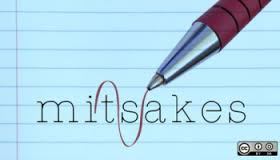WWW.SOLUTIONFANS.COM - MASTER OF ALL EXAM RUNS
The English language is replete with English words that are often confused with each other. The reasons could be because they sound alike even though they have very different meanings, have the same spelling/pronunciation or because their meanings are almost similar such that you think you could interchangeably use them. But no matter the excuses for such errors, the truth remains that when people use words wrongly, they immediately come across as uneducated or even plain dumb. And “uneducated” and “dumb” are not how any student would like to be categorized. That is why you must therefore take note of these commonly misused words, get their meanings and never make the mistake of misusing them ever. Learn please.
TWO – a number reflecting the total of one plus one (adjective)
Example: There were two women in the car.
TO – moving toward (adverb) or direction to go or result (preposition)
Example: The women were going to a party.
TOO – also, much, or very (adverb)
Example: It was too hot to wear a jacket.
LOSE – to not win or to misplace something (verb)
Example: She ate less so that she could lose weight.
LOOSE – unbound or not tight (adjective)
Example: She lost so much weight her pants were loose .
FEWER – a smaller number (adjective)
Example: There were fewer bottles filled than originally planned.
LESS – a smaller amount (adjective)
Example: These bottles had less liquid than the prior shipment.
ME – one’s self when the speaker is referring to himself or herself (object pronoun)
Example: He went to the store with me .
I – the person who is speaking (subject pronoun)
Example: I went to the store.
HEIR- belongs to them (adjective)
Example: It is their car.
THERE – a place (adverb)
Example: They parked the car over there .
THEY’RE- a combination of “they” and “are” (contraction)
Example: They’re walking to the car.
BY – past (adverb)
Example: The bus went by.
BY – near or beside (preposition)
Example: He put the cup by the plate.
BUY – to purchase (verb)
Example: He wanted to buy a cup of coffee.
BYE – a short form of goodbye (interjection)
Example: He said “bye” to his family before he went to breakfast.
CAN – has the ability (verb)
Example: He took lessons so he can drive the car.
MAY – has permission (verb)
Example: His mom said he may drive the family’s car.
LEAD- a metal (noun)
Example: The pipes were made of lead .
LED – the past tense form of the verb lead (verb)
Example: The Company led the other companies in the cleanup effort.
AFFECT – to influence or produce a change (verb)
Example: Water will affect the growth of the plant.
EFFECT – result (noun)
Example: The effect of water was growth of the plant.
WHO – a reference to a person (subject pronoun)
Example: Who is that person?
WHOM – a reference to him or her (object pronoun)
Example: To whom are you speaking?
BE NICE. SHARE THIS ARTICLE WITH YOUR FRIENDS
Be among those that are joining our VIP list, Click here to subscribe for your waec questions and answers now or click here to subscribe for jamb night runs
also don't forget to leave a Reply, we would very MUCH appreciate Your Comments On This Post Below. Thanks!



sir I need your help for this 2018 waec
Kindly subscribe